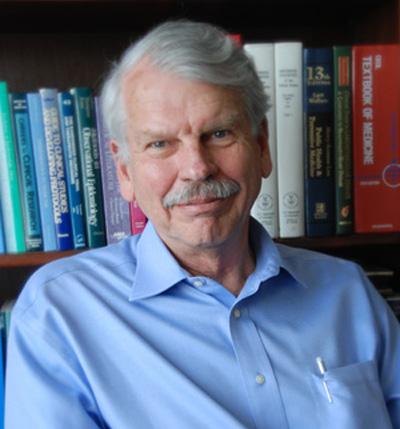Remembering Stephen Hulley, MD, MPH
 It is with profound sorrow that we share the news that Stephen Hulley, MD, MPH, passed away after a brief illness. Dr. Hulley was on the UCSF faculty for more than 30 years and served as Chair of the Department of Epidemiology and Biostatistics from 1994 to 2006. He made major contributions in the fields of epidemiology and clinical research.
It is with profound sorrow that we share the news that Stephen Hulley, MD, MPH, passed away after a brief illness. Dr. Hulley was on the UCSF faculty for more than 30 years and served as Chair of the Department of Epidemiology and Biostatistics from 1994 to 2006. He made major contributions in the fields of epidemiology and clinical research.
Dr. Hulley’s research played a pivotal role in determining that systolic hypertension warrants treatment and that hormone replacement therapy for postmenopausal women does not reduce the risk of heart disease. He also helped launch and steer the thirty-year CARDIA study on risk factors for heart disease that generated some 800 published papers.
In 1976, Dr. Hulley joined UCSF as an adjunct assistant professor. Six years later, he established the clinical epidemiology program in what was then called the Department of Epidemiology and International Health, with funding from the Mellon Foundation. At the time, there was little institutional support for epidemiology or clinical research training at UCSF. With an entrepreneurial spirit and an “If we build it, they will come” optimism, Dr. Hulley continuously found ways to increase opportunities for training in clinical research.
Dr. Hulley played a part in establishing the San Francisco Coordinating Center, a UCSF-affiliated non-profit research collaborative focused on multi-center clinical trials; the Prevention Sciences Division of the Department of Medicine; and the Center for AIDS Prevention Studies.
In 1994, Dr. Hulley was appointed chair of the department that by then was called the Department of Epidemiology and Biostatistics; he would hold the post for the next 12 years. In 2000, a K-30 NIH grant Dr. Hulley led supported a growing set of post-doctoral training activities in clinical research methods that were the focus for a certificate program and, eventually, the department’s first master’s degree.
Dr. Hulley retired in 2010. Robert Hiatt, MD, who followed Dr. Hulley as chair (initially with Neil Risch, PhD) and the current interim chair, Mark Pletcher, MD, MPH, were both recruited by Dr. Hulley.
“I feel like I learned so much from him – to really value good writing; he was funny and humorous and so warm. I loved the way he ran meetings; I loved watching him bring people together and get things moving along,” Dr. Pletcher said.
Dr. Hulley is remembered by his colleagues as an optimistic and warm team-builder who recruited good people, supported them well, and then let them lead. On behalf of the School of Medicine, we would like to extend our condolences to Dr. Hulley’s family, friends, and close colleagues. His loss will be felt far and wide.
